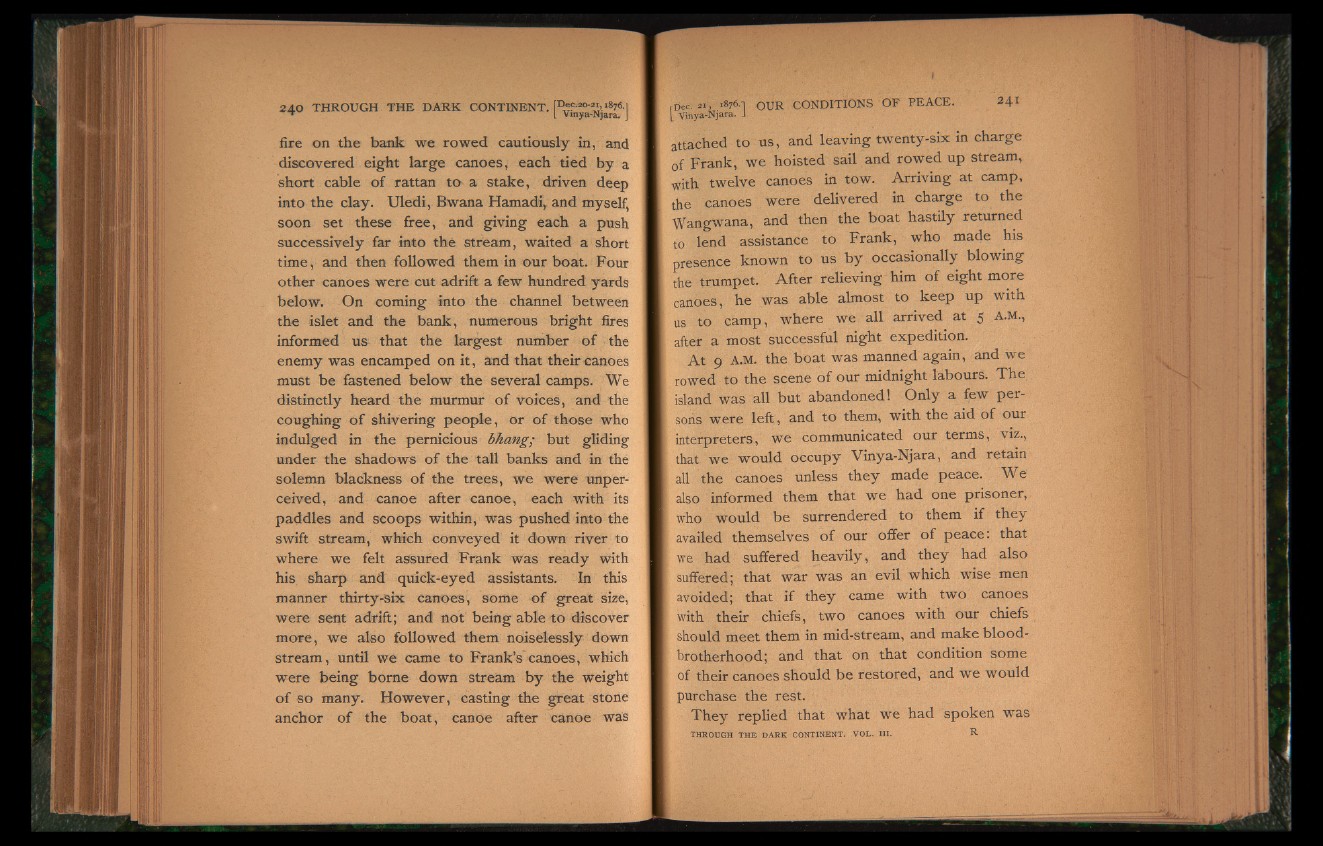
fire on the bank we rowed cautiously in, and
discovered eight large canoes, each tied by a
short cable of rattan to a stake, driven deep
into the clay. Uledi, Bwana Hamadi, and myself,
soon set these free, and giving each a push
successively far into thé stream, waited a short
time, and then followed them in our boat. Four
other canoes were cut adrift a few hundred yards
below. On coming into the channel between
the islet and the bank, numerous bright fires
informed us that the largest number of the
enemy was encamped on it , and that their canoes
must be fastened below the several camps. We
distinctly heard the murmur of voices, and the
coughing of shivering people, or of those who
indulged in the pernicious bhang; but gliding
under the shadows of the tall banks and in thé
solemn blackness of the trees, we were unperceived,
and canoe after canoe, each with its
paddles and scoops within, was pushed into the
swift stream, which conveyed it down river to
where we felt assured Frank was ready with
his sharp and quick-eyed assistants. In this
manner thirty-six canoes, some of great size,
were sent adrift; and not being able to discover
more, we also followed them noiselessly down
stream, until we came to Frank’s canoes, which
were being borne down stream by the weight
of so many. However, casting the great stone
anchor of the boat, canoe after cânoe was
rDec. 2 1 , 1876.-1 OUR CONDITIONS OF PEACE. 241
[ Vmya-Njara. J
attached to us, and leaving twenty-six in charge
pf Frank, we hoisted sail and rowed up stream,
with twelve canoes in tow. Arriving at camp,
the canoes were delivered in charge to the
Wangwana, and then the boat hastily returned
to lend assistance to Frank, who made his
presence known to us by occasionally blowing
the trumpet. After relieving him of eight more
canoes, he was able almost to keep up with
us to camp, where we all arrived at 5 A.M.,
after a most successful night expedition.
At 9 A.M. the boat was manned again, and we
rowed to the scene of our midnight labours. The
island was all but abandoned! Only a few persons
were left, and to them, with the aid of our
interpreters, we communicated our terms, viz.,
that we would occupy Vinya-Njara, and retain
all the canoes unless they made peace. We
also informed them that we had one prisoner,
who would be surrendered to them if they
availed themselves of our offer of peace: that
we had suffered heavily, and they had also
suffered; that war was an evil which wise men
avoided; that if they came with two canoes
with their chiefs, two canoes with our chiefs
should meet them in mid-stream, and make blood-
brotherhood; and that on that condition some
of their canoes should be restored, and we would
purchase the rest.
They replied that what we had spoken was
THROUGH THE DARK CONTINENT. VOL. HI. R